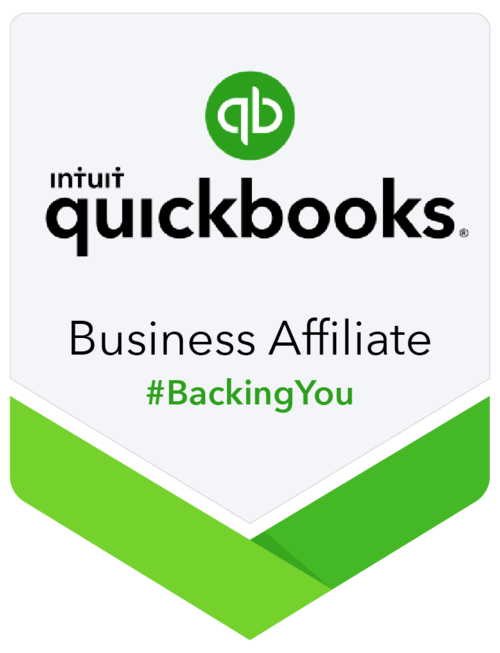QuickBooks is one of the most trusted accounting tools for small and mid-sized businesses. For accountants and CPAs, it plays a major role in handling bookkeeping, financial reporting, payroll, and tax preparation. However, when QuickBooks Desktop is installed locally on office computers, it often brings challenges that affect productivity, client service, security, and daily workflow.
Accountants frequently experience problems such as slow performance, version conflicts, multi-user access issues, data corruption, and system crashes—often at the worst possible times, like during tax season or month-end closing. These issues not only cause stress but also lead to wasted time, rework, lost data, and frustrated clients.
This guide explains the most common QuickBooks Desktop issues faced by accountants and CPAs, why they happen, and how moving QuickBooks to the cloud helps firms work faster, safer, and more efficiently.
Common QuickBooks Desktop Issues: A Practical Overview
1. IT and Technical Issues That Slow Accountants Down
Most accounting firms run QuickBooks Desktop on office computers or local servers. This creates technical problems that accountants shouldn’t have to deal with in the middle of billable work.
Think of situations like:
- QuickBooks not opening when you urgently need to check a client ledger
- Software crashing while preparing tax returns
- Network issues stopping your team from accessing files
Here is a simplified comparison of what accountants usually face with local QuickBooks vs cloud-hosted QuickBooks:
| Problem Area | QuickBooks Desktop (Local) | QuickBooks Hosted in the Cloud |
|---|---|---|
| Setup & Installation | Time-consuming, technical, and error-prone | Fully managed by hosting provider |
| Software Compatibility | Issues after Windows or QuickBooks updates | Provider ensures compatibility |
| Network Reliability | Depends on local office internet and servers | Accessible from any internet connection |
| Performance | Slows down with large company files | High-speed cloud infrastructure |
| Data Corruption | Risk due to system crashes or power failures | Automated backups minimize risk |
| Multi-User Access | Difficult to configure, frequent conflicts | Smooth, real-time multi-user access |
| Security | Depends on office antivirus and firewall | Enterprise-level data security |
| Hardware Issues | Downtime and costly repairs | Redundant and fail-safe hosting |
Industry Insight: Businesses worldwide are moving to the cloud not because it’s trendy, but because it is more reliable, secure, and cost-effective.
2. Software and Usage Problems Accountants Commonly See
Even when QuickBooks Desktop is working, accountants still face everyday operational issues such as mistakes in transactions or missing documents. These become bigger problems during audits, IRS reviews, or financial reporting.
| Issue | Impact on Firms | Cloud Hosting Benefit |
|---|---|---|
| Misclassified Transactions | Inaccurate financial reports, tax mistakes | Accountants can review files in real time |
| Auto-Categorization Errors | Financial discrepancies if ignored | Shared access enables live corrections |
| Subscription or File Ownership Issues | Limited access when users change | Centralized access management |
| Missing Receipts and Documentation | Audit risks and lost deductions | Secure cloud storage and easy retrieval |
| Non-Technical Users Making Errors | Costly mistakes | Accountants can log in remotely and fix issues |
Realistic Scenario:
Imagine a small business owner incorrectly categorizing expenses all year. At tax time, instead of transferring files back and forth, a CPA can simply log in to hosted QuickBooks, correct transactions, and finalize books instantly.
3. Issues Accountants Frequently Report in QuickBooks Desktop
Accountants regularly complain about:
1. Constant QuickBooks Errors and Crashes
Error codes like H202, -6000, and C=43 interrupt work, especially in multi-user environments.
2. Integration Problems
Payroll, CRM, and inventory systems don’t always sync smoothly with local QuickBooks.
3. File Sharing Headaches
Emailing QuickBooks files back and forth leads to:
- Multiple versions of files
- Confusion over “latest file”
- Higher risk of mistakes
4. Poor Backup Practices
Many firms forget to back up data regularly, putting financial records at serious risk.
5. Security Threats
Local systems are easier targets for ransomware and breaches.
Turning QuickBooks Desktop Problems into Advantages with Cloud Hosting
When QuickBooks is hosted in the cloud, accountants gain the flexibility of working from anywhere with the reliability and security of enterprise-grade technology—without needing to be IT experts.
QuickBooks Desktop vs Cloud Hosting: Simple Business Comparison
| Desktop Limitation | Cloud Hosting Advantage |
|---|---|
| Only works on installed computer | Work from office, home, or client site |
| Manual updates and maintenance | Provider manages updates |
| Risk of losing data if computer fails | Automatic backups protect files |
| Difficult to share and collaborate | Multiple users work together in real time |
| Not ideal for remote work | Built for remote and hybrid accounting teams |
Real-World Accounting Scenarios
Scenario 1: Tax Season Rush
A CPA firm used to email QuickBooks files between team members and clients, leading to confusion and delays. After moving to hosted QuickBooks:
- Everyone worked in the same file
- No duplicate copies
- Turnaround time improved significantly
Scenario 2: Unexpected Data Loss
A small firm lost months of records due to a hard drive crash.
In a hosted setup, automated backups would have restored everything instantly.
Scenario 3: Security Concerns
A firm was hit by ransomware, locking local QuickBooks files.
Cloud hosting environments use encryption, multi-factor authentication, and constant monitoring—dramatically reducing risk.
QuickBooks Desktop vs QuickBooks Cloud Hosting: At-a-Glance
| Feature | QuickBooks Desktop | QuickBooks Cloud Hosting |
|---|---|---|
| Access | Office computer only | Any device, anywhere |
| Collaboration | Complex | Seamless |
| Security | Depends on local setup | Enterprise-grade |
| Backups | Manual | Automated |
| Performance | Depends on PC | High-speed cloud |
| Updates | User-managed | Provider-managed |
| Remote Work | Limited | Fully supported |
Frequently Asked Questions (FAQ)
A: Frequent issues include error codes related to company file access, data corruption, multi-user mode failures, and integration problems with third-party apps.
A: Cloud hosting provides scalable resources, automatic updates, and eliminates local hardware limitations, resulting in faster report generation and smoother multitasking.
A: Yes. Cloud providers use advanced encryption, multi-factor authentication, and 24/7 monitoring in secure data centers, significantly reducing the risk of data breaches and loss.
A: Your data remains safe in the cloud. Once connectivity is restored, you can resume work from any device. Some providers offer offline options or local backups for critical needs.
A: Tax Cloud solutions provide secure, easily retrievable digital records and audit trails, making compliance with IRS and industry regulations straightforward.
Conclusion: Why Accountants Are Moving QuickBooks to the Cloud
QuickBooks is an excellent accounting platform, but running it locally adds unnecessary risk, stress, and complexity. Cloud hosting transforms QuickBooks into a more reliable, secure, flexible, and modern accounting solution—perfect for today’s remote-capable, client-focused accounting environment.
Accounting firms benefit from:
- Better performance
- Easier teamwork
- Stronger security
- Automatic backups
- Reduced IT burden
Simply put, hosted QuickBooks helps accountants and CPAs work smarter, not harder.
Optimize QuickBooks Performance with OneUp Networks
If your firm wants faster performance, secure remote access, and smoother collaboration, moving QuickBooks to the cloud is a smart business decision. OneUp Networks provides a secure, high-performance hosting platform built for accountants and financial professionals.
- Book a Demo – See hosted QuickBooks in action.
- Start a Free Trial – Test your workflows in a live environment.
- Request a Quote – Get a tailored hosting plan for your firm.
Don’t Miss These Helpful Blogs:




































